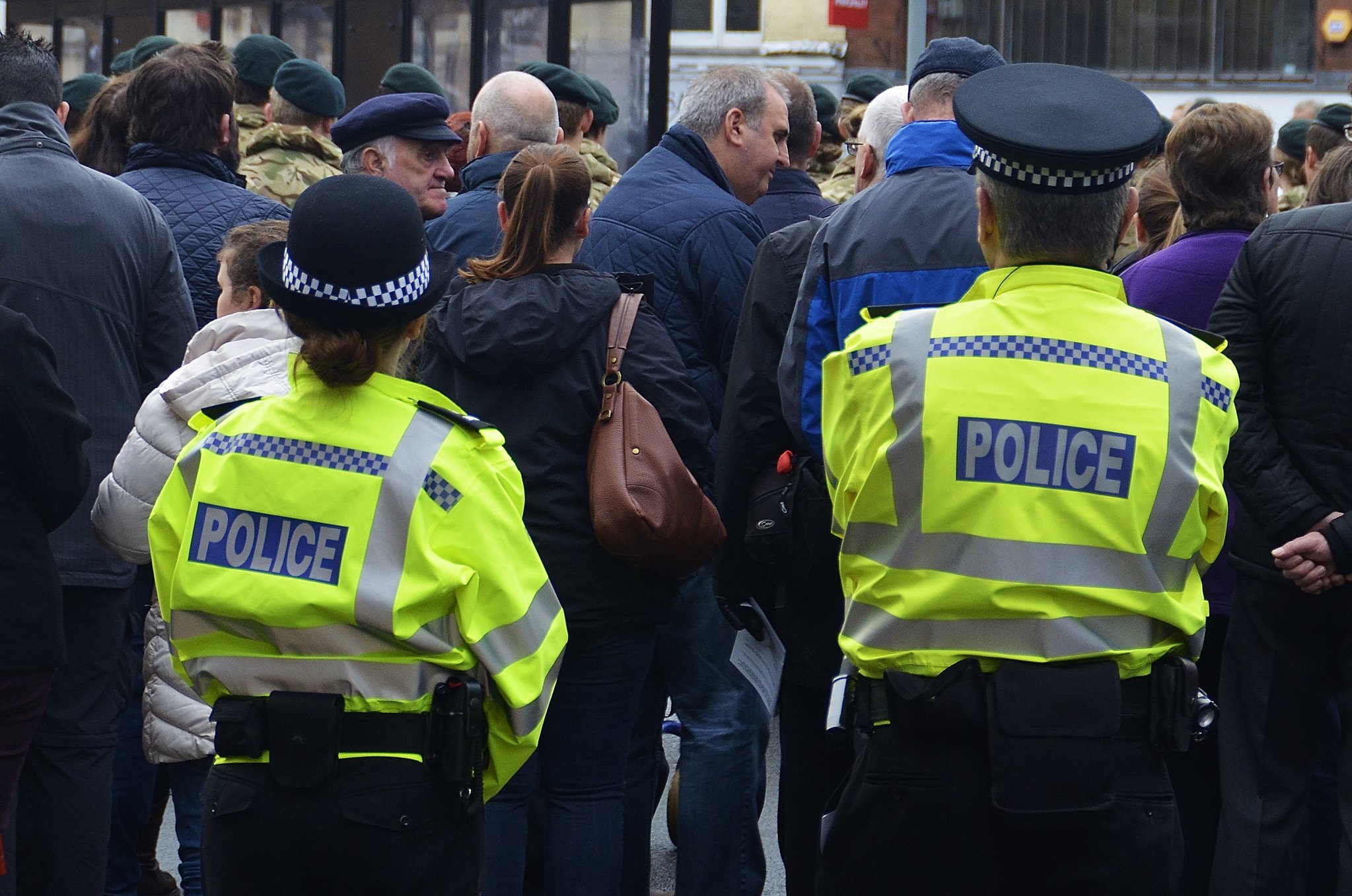CW: sexual violence
“We no longer trust the police” – how some women are viewing new policing laws with contempt
Feminist groups feel the police are failing to protect them, and are demanding change at a societal level to tackle violence against women.
The past month has seen the killing of a woman, Sarah Everard, at the hands of a police officer, followed by the extreme crackdown on a vigil to remember her which was said to breach coronavirus restrictions. The Police, Crime, Sentencing and Courts Bill, which features controversial laws against organised protest and recently passed through the House of Commons, sparked protests of its own across the country which, in Bristol, turned to riots. For groups such as the Edinburgh University Feminist Society, anger at these events was directed towards law enforcement and the justice system.
The Clapham Common vigil for Sarah Everard was ended by what many saw as a heavy handed approach by the police, with images of women man-handled and arrested dominating the media. Many saw this as an example of what happens when the police are left to decide what is lawful and what is not: when does individuals paying their respects become an illegal assembly?
The proposed Policing Bill, which was written in response to Extinction Rebellion protests in 2019, would give police in England and Wales sweeping powers to shutd down protests, and make arrests for causing “serious annoyance”. To many, this felt like yet more ambiguous legislation that could lead to an increased number of scenes like that of the Clapham vigil.
This encouraged the feminist organisation Sisters Uncut to organise the “Kill The Bill” protests. They feel that the killing of Sarah Everard and the subsequent action at her vigil is evidence that the police do not protect women and are, in fact, an active threat. By protesting this bill, they aim to prevent further powers given to the police to break up protests beyond Covid times. However, when protests in Bristol turned to riots, involving attacks on police officers and police vans set on fire, this gave proponents of the bill more reason to hand police powers to disband protests.
The Edinburgh University Feminist Society was among many feminist groups that feel the system is failing them. “We need long-term cultural shifts” said Frances Roberts, President of the society. Since Sarah Everard’s killing the Government has proposed increased CCTV, better street lighting, and plainclothes police in clubs and bars. While asserting that CCTV and better street lighting are important measures, Roberts points out that violence against women also occurs in daylight and in private spaces – instances where these measures would fail to help.
Roberts told The Student that the suggestion of placing plainclothes police in clubs in the name of protecting women was “disastrous and frankly insensitive”. Much like Sisters Uncut, EUFS see the killing of Sarah Everard and the “utter lack of compassion” shown by the police as evidence of a misogynistic institution. “We no longer trust the police”, said Roberts. “The Government has yet again failed to read the room and have fundamentally failed society in their response to Sarah Everard’s death”.
Many see the Police, Crime, Sentencing and Courts Bill as another example of the government failing to read the room. While increasing police powers to break up protests is seen by some as an infringement on their rights, this bill is also seen as a missed opportunity to tackle violence against women.
The bill does make long awaited changes: it contains greater protections for frontline emergency service workers and new measures to increase sentences for child killers and other violent criminals. However, it fails to mention the word ‘women’ once, a fact that has not gone unnoticed by opposers of the bill and has increased feelings of frustration among those who feel the system is against them.
If increased policing is not the answer, then what is? One line on which all women’s and feminist groups agree is that education must be at the core of any change. EUFS recently hosted an event: “Not all Men but almost all Women,” which invited male feminists to teach men how to challenge casual sexism. For deeper societal shifts, these groups feel that when tragedies like the killing of Sarah Everard occur, the impetus should not be on women to change their actions to protect themselves but for men to change. This, they believe, must start in education.
Image: Nick Vidal-Hall via Flickr

